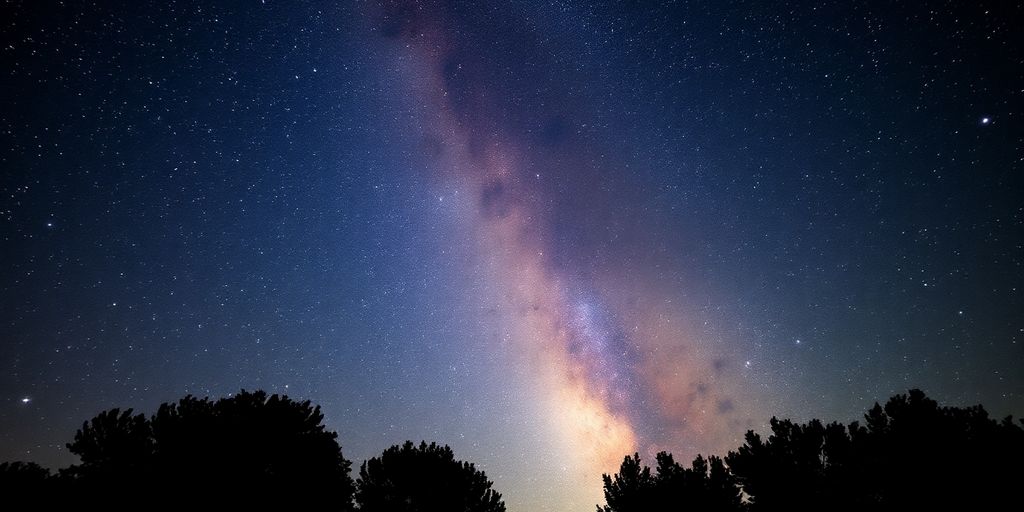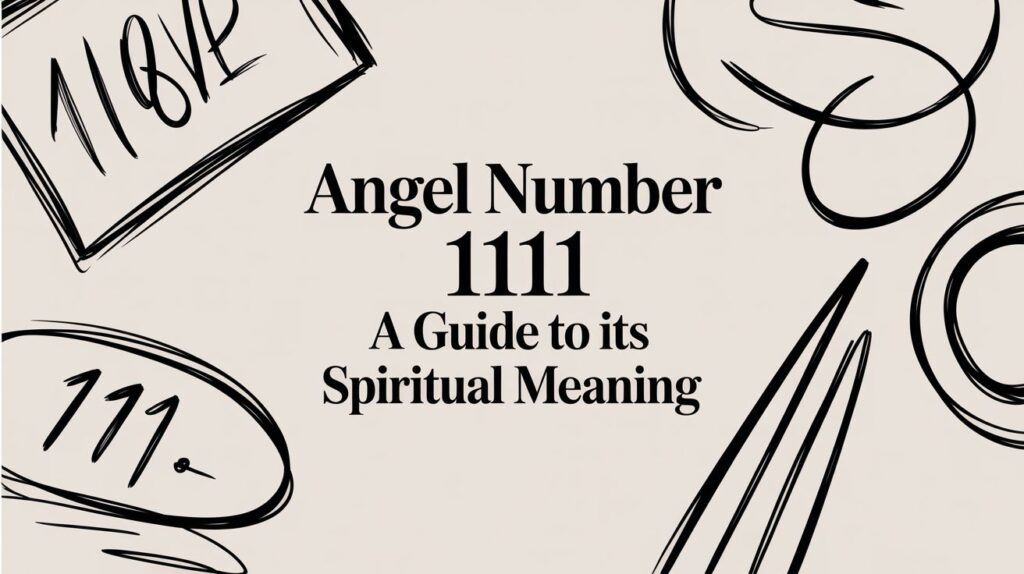Exploring Astrotheology: The Intersection of Faith and the Cosmos

Astrotheology is a fascinating field that looks at how our understanding of the universe connects with our beliefs about God and spirituality. By exploring the stars, planets, and other celestial bodies, we can see how different cultures and religions have interpreted the cosmos throughout history. This article will take you on a journey through the key ideas and discussions surrounding astrotheology, showing how it shapes our faith and understanding of the universe.
Key Takeaways
- Astrotheology connects faith with the study of the universe.
- Many ancient cultures worshipped celestial bodies like the sun and moon.
- Modern spiritual movements often include ideas from astrotheology.
- Astronomy and theology can have meaningful conversations with each other.
- Different cultures have unique beliefs about the cosmos that influence their religions.
Understanding Astrotheology
Astrotheology is the study of how celestial bodies influence religious beliefs and practices. It connects the stars, planets, and other cosmic elements to faith. This field explores how ancient cultures viewed the cosmos and how these views shaped their spiritual systems.
Defining Astrotheology
Astrotheology combines astronomy and theology. It looks at how people understand the universe and their place in it. Here are some key points:
- It examines the relationship between the cosmos and religious beliefs.
- It studies how different cultures interpret celestial events.
- It seeks to understand the spiritual significance of stars and planets.
Historical Context of Astrotheology
Throughout history, many civilizations have worshipped celestial bodies. For example:
- Ancient Egyptians revered the sun god Ra.
- The Greeks associated gods with constellations.
- Indigenous cultures often see the moon as a powerful symbol.
Key Concepts in Astrotheology
Astrotheology includes several important ideas:
- Cosmic symbolism: How celestial bodies represent spiritual truths.
- Mythology: Stories that connect gods with the stars.
- Rituals: Practices that honor celestial events, like solstices and equinoxes.
Understanding astrotheology helps us see how deeply connected our beliefs are to the universe. It shows that the stars have always played a role in shaping human spirituality.
Astrotheology is not just about the past; it continues to influence modern beliefs and practices. By studying it, we can gain insights into how faith and the cosmos interact today.
The Role of Celestial Bodies in Religious Texts
Sun Worship in Ancient Cultures
Many ancient civilizations revered the sun as a powerful deity. The sun was seen as a source of life, providing warmth and light essential for survival. Cultures like the Egyptians and Aztecs held elaborate rituals to honor the sun, believing it influenced their agricultural success and daily life.
The Moon’s Influence on Religious Practices
The moon has also played a significant role in various religions. Its phases often dictate important events, such as festivals and rituals. For example, many cultures celebrate the full moon with special ceremonies, believing it brings blessings and good fortune.
Stars and Constellations in Sacred Narratives
Stars and constellations have been woven into the fabric of many religious stories. They are often seen as guides or symbols of divine messages. In some traditions, specific stars are associated with particular deities or events, helping followers connect with the cosmos.
| Celestial Body | Cultural Significance | Example of Worship |
|---|---|---|
| Sun | Life and Growth | Egyptian Sun God Ra |
| Moon | Timekeeping | Lunar Festivals |
| Stars | Guidance | Navigation in Myths |
Celestial bodies were used to create calendars, helping Egyptians track time for agricultural activities and religious observances. Rituals and processions were often aligned with their movements, showing the deep connection between the heavens and daily life.
Astrotheology in Modern Spirituality

New Age Movements and Astrotheology
Astrotheology has found a significant place in New Age movements. Many followers believe that understanding the cosmos can lead to spiritual awakening. They often incorporate celestial themes into their practices, such as:
- Meditation under the stars
- Rituals aligned with lunar phases
- Celebrations of solar events like solstices
Astrotheology in Contemporary Religious Thought
In today’s world, many religious thinkers are exploring how astrotheology can fit into modern beliefs. This includes:
- Reinterpreting ancient texts with a cosmic perspective.
- Finding connections between science and spirituality.
- Encouraging a sense of unity with the universe.
The Impact of Space Exploration on Faith
The discoveries from space exploration have changed how some people view their faith. As we learn more about the universe, it raises questions about our place in it.
Understanding the cosmos can deepen our spiritual beliefs and challenge us to rethink our connection to the divine.
In summary, astrotheology is becoming a bridge between science and spirituality, helping people find meaning in both their faith and the vast universe around them. It encourages a dialogue that can enrich both religious and scientific communities.
Scientific Perspectives on Astrotheology
Astronomy and Theology: A Dialogue
Astrotheology brings together science and faith, creating a space for discussion. Astronomers and theologians often explore how the universe influences our understanding of spirituality. Here are some key points:
- Cosmic events can inspire religious beliefs.
- The vastness of space raises questions about our place in the universe.
- Many religious texts reference celestial bodies, linking them to divine messages.
Astrobiology’s Role in Astrotheology
Astrobiology studies life beyond Earth, which can change how we view existence. If we find life on other planets, it could challenge traditional beliefs. Here are some thoughts:
- Discovering extraterrestrial life may lead to new religious interpretations.
- It could unite different faiths in a shared understanding of life.
- Questions about creation and the universe may arise, prompting deeper exploration.
Cosmology and Spiritual Beliefs
Cosmology, the study of the universe’s origin and development, plays a significant role in astrotheology. It helps us understand:
- The Big Bang theory and its implications for creation.
- How galaxies and stars relate to various religious beliefs.
- The connection between scientific discoveries and spiritual insights.
Understanding the universe can deepen our faith and challenge our beliefs.
In summary, the intersection of science and spirituality in astrotheology opens up new avenues for exploration and understanding. As we learn more about the cosmos, we may find that our beliefs evolve alongside our discoveries.
Highlight: uap and ancient alien theology
Astrotheology Across Different Cultures
Astrotheological Beliefs in Indigenous Cultures
Many indigenous cultures have a deep connection with the cosmos. They often see the worship of heavenly bodies as a way to understand their place in the universe. Here are some key beliefs:
- Stars as ancestors: Many tribes believe that stars are the spirits of their ancestors watching over them.
- Seasonal changes: The movements of celestial bodies help in predicting seasons, which is crucial for agriculture.
- Ceremonial practices: Rituals are often timed with celestial events like solstices and eclipses.
Eastern Philosophies and the Cosmos
In Eastern philosophies, the cosmos is often viewed as a reflection of the inner self. Key ideas include:
- Harmony with nature: Many Eastern traditions emphasize living in balance with the universe.
- Meditation and celestial alignment: Practices like yoga often incorporate the positions of celestial bodies.
- Symbolism of the moon: The moon is frequently seen as a symbol of change and renewal.
Western Religious Interpretations of the Heavens
In Western religions, the heavens are often seen as a sign of divine presence. Important points include:
- Creation stories: Many religions have creation myths that involve celestial events.
- Astrology’s influence: Some Western beliefs incorporate astrology, linking celestial movements to human behavior.
- The role of the sun: The sun is often viewed as a symbol of life and light, representing divine power.
Understanding how different cultures view the cosmos helps us appreciate the diverse ways people connect with the universe. Each culture brings its own unique perspective, enriching the tapestry of human belief.
Challenges and Criticisms of Astrotheology
Skeptical Views on Astrotheology
Astrotheology faces many doubts from critics. Some argue that mixing science and religion can lead to confusion. They believe that faith should not depend on scientific discoveries. Here are some common skeptical views:
- Science and faith should remain separate.
- Astrotheology lacks solid evidence.
- Many see it as a way to justify beliefs rather than explore truth.
Debates Among Theologians and Scientists
There are ongoing discussions between theologians and scientists about astrotheology. Some key points of debate include:
- The role of celestial bodies in religious beliefs.
- How scientific findings can change traditional views.
- Whether astrotheology can provide real answers to spiritual questions.
Astrotheology and the Question of Evidence
One major challenge is the lack of evidence supporting astrotheological claims. Critics often ask:
- How can we prove that celestial events influence faith?
- Are there any real connections between the cosmos and religious beliefs?
- What happens when scientific discoveries contradict religious texts?
The relationship between theology and cosmology raises interesting challenges and opportunities for theologians. An accelerating universe is not necessarily good news for the eternal nature of faith.
Astrotheology and the Future of Faith

The Evolution of Religious Beliefs with Space Discoveries
As we learn more about the universe, our understanding of faith is changing. New discoveries in space can challenge old beliefs and inspire new ones. For example, when scientists find new planets or signs of life, it makes people think about their place in the cosmos. This can lead to:
- New interpretations of religious texts.
- A blending of science and spirituality.
- Increased interest in the universe among faith communities.
Astrotheology’s Influence on Future Generations
Astrotheology is likely to shape how future generations view their beliefs. Young people today are more open to combining science with spirituality. They might:
- Explore how the universe connects to their faith.
- Participate in discussions about the meaning of life in a vast cosmos.
- Create new spiritual practices that include cosmic elements.
Integrating Science and Spirituality
The future of faith may involve a closer relationship between science and spirituality. This integration can help people find meaning in both their beliefs and scientific discoveries. Empowering diverse faith communities through this connection can lead to:
- Greater understanding among different religions.
- Collaborative efforts in addressing global issues.
- A more inclusive approach to spirituality that welcomes scientific insights.
The journey of faith is not just about looking up at the stars; it’s about understanding our place in the universe and how we connect with it.
In conclusion, as we continue to explore the cosmos, our beliefs may evolve, leading to a richer understanding of both science and spirituality. This journey will likely inspire future generations to seek knowledge and meaning in new and exciting ways.
Conclusion
In summary, astrotheology helps us think about how our beliefs connect with the universe. It shows us that faith and science can work together to give us a better understanding of our place in the cosmos. By exploring the stars and the stories behind them, we can find new ways to think about life, purpose, and our connection to something bigger than ourselves. As we continue to learn about the universe, we also learn more about ourselves and the beliefs we hold dear.
Frequently Asked Questions
What is astrotheology?
Astrotheology is the study of how stars and planets relate to different religions and beliefs. It looks at how people connect their faith with the universe.
How has astrotheology changed over time?
Astrotheology has been around for a long time. In ancient times, people often worshiped the sun and moon. Today, it includes modern ideas about space and science.
What role do celestial bodies play in religious texts?
Many religious texts mention the sun, moon, and stars. These celestial bodies often symbolize important ideas and are linked to rituals and beliefs.
How is astrotheology viewed in today’s spirituality?
Many new spiritual movements today include ideas from astrotheology. People often look to the stars and planets for guidance in their spiritual journeys.
What do scientists think about astrotheology?
Scientists and theologians sometimes discuss astrotheology. They explore how science and faith can work together, especially with discoveries about space.
What challenges does astrotheology face?
Astrotheology faces skepticism from some people who question its ideas. There are also debates about how to connect faith with scientific evidence.








Responses